How a North Holland Oil and Gas Advertising Agenda Threatens to Become Formula 1's New Tobacco Ban
The Dutch Grand Prix was a reminder of Big Oil's prevalence. The country's Green Party aims to drive fossil fuel promotion from its borders.
Welcome to Formula Flash, where your local sports column meets Cosmo wrapped up in a newsletter delivered to your inbox via the cool girl next door (i.e. motorsport and enviro journo Olivia Hicks). It’s like “Drive to Survive” without the sensationalism!
At Sunday’s Dutch Grand Prix, Ferrari drove the same way it has the past 70 years: with a yellow and red seashell logo stamped onto its race cars. The Aramco name lined the 2.6-mile circuit’s black tarmac edge, promising to smudge green and blue across any car that skidded into the barriers. Aston Martin proudly displayed the Saudi-backed petrochemical title sponsor while two black Mercedes were branded with “Petronas.” Williams’ pit crew members squeezed their heads into teal and orange helmets, Gulf’s signature colors. And Max Verstappen, standing on the second podium step, embraced his home crowd’s screams with the ExxonMobil logo pressed neatly onto his navy blue race suit.
But just seven miles down the road in the city of Haarlem, oil and gas advertising is against the law.
The Netherlands was ahead of the fossil fuel promotion ban trend when Amsterdam’s city council voted to ban fossil fuel and gas-powered car and air travel advertisements in subway stations in 2021. In April, a proposal to ban all fossil fuel, including oil and gas, advertising city-wide was tabled. The capital city is anticipated to follow other Dutch cities in passing a total ban through General Municipal By-Law (APV), the local permitting and regulatory governing body. Zwolle became the first to ban fossil fuel ads while nine other cities proposed similar advertising regulations.
Just three months ago, Haarlem announced a new advertising policy that banned fossil fuel and industrial agriculture product ads. While several cities petitioned the government for a federal ban, others focused on regional regulations—with North Holland as a major contender.
Now, bans are spreading past Holland’s borders. In June, the United Nations Secretary-General António Guterres addressed the organization’s 193 member states. He urged each to take the next step toward combating climate change: slashing oil and gas promotion. City governments have already responded. Edinburgh is set to outlaw fossil fuel company advertising on city property and digital media, along with banning sponsorship opportunities for city-wide events. Stockholm will do the same in 2026.
As cities begin to double down on advertising, Formula 1’s reliance on oil and gas partnerships raises eyebrows. After all, the sport is founded on pumping gas into cars and watching them twirl around different shaped circuits. Formula 1’s annual trip to the Netherlands on Sunday brought the agenda front of mind. The consequences of fossil fuel advertising mandates, reminiscent of Formula 1’s 40-year love affair with Big Tobacco, would likely be crippling. But that’s only if a ban is even possible.
Unless a nationwide or regional ban is passed, the likelihood of the race host city outlawing Big Oil sponsorship is slim. Zandvoort’s mayor, David Moolenburgh, is a member of the Christian Democratic Appeal party. The center-right political party boosts environmental protection measures but lacks the push for fossil fuel advertising bans principal to the Green Party. In cities like Amsterdam, the proposal has successfully passed with the help of serving Green Party mayors and council members. But even that progress has slowed slightly. The Netherlands, like many European countries, is home to a growing far-right nationalist party. Last year, the Party For Freedom (PVV) doubled its parliament seats. In June, the left-wing Labor and Green parties won eight seats while the PVV won seven.
And those right-wing seats push for oil and gas conglomerate tax perks—something embedded in the nation.
Holland, a tax haven for oil and gas companies, extends up to €49 billion in fossil fuel tax breaks to industrial companies, according to the Dutch government. The law allows for tax breaks on gas use, along with no tax on oil refining or fossil fuels used for energy development. Both Shell and BP have oil refineries on Dutch soil and critics have bashed the close ties between politicians and petrochemical companies. The PVV’s agenda hinges on keeping the Netherlands’ status as a fossil fuel tax refuge in place. In 2019, Shell was accused of donating nearly half a million dollars to the “father of climate science denial,” a Dutch chemist and former chairman of the Scientific Council for Government Policy.
The country’s history with fossil fuel companies and Formula 1 goes back to the inception of both. Shell began in the spring of 1907. The Netherlands, fittingly, was there from the start. A merger between the Royal Dutch Petroleum Company and the United Kingdom’s Shell Transport and Trading Company formed the largest oil producer across the globe. And with that status came growing responsibility for environmental and social problems. From 1988 to 2015, Shell was the ninth largest corporate producer of greenhouse gas emissions, taking into account its own emissions and the emissions from fuels sold. The company continues to have a rapport with the Dutch government, alleged the “Shell Papers Project,” a Freedom of Information Act filing by the Platform for Authentic Journalism that resulted in thousands of documents that detailed Shell’s communication with and influence in Dutch politics.
In 1924, Shell’s relationship with Ferrari began even before there was a Ferrari racing team to fuel. The oil and gas company struck a deal with a 26-year-old Enzo Ferrari when he was piloting cars as an Alfa Corsa driver. At the turn of the decade, Ferrari hung up his racing boots and founded Alfa Romeo Grand Prix, partnering exclusively with Shell. With the exception of a brief break in the 70s and 80s, Shell was there all along in Formula 1’s history: sitting inside of the 4.5-liter engines that soared Ferrari to its first 24 Hours of Le Mans win in 1949, oiling the Italian-crafted single-seaters to win the British Grand Prix in 1951 and fueling Alberto Ascari to Drivers’ Championship glory the following year. Shell touts the business venture as “one of the most successful collaborations in motorsport history.”
But environmentalists aim to unravel that success—or at least hold the company accountable.
Shell and other petrochemical providers have made sustainable fuel development strides in recent years, with a focus on hydrogen power development. In 2015, Shell announced its “Eco-Marathon” program and two years later, it made Formula 1 cars 20 percent more efficient. Last year, 55 percent of Formula 2 and 3 Aramco fuel was sustainable. By 2026, Formula 1 aims to be powered by 100 percent sustainable fuel—a large leap from its current 10 percent renewable ethanol makeup. Five fuel suppliers currently use Formula 1 as a research and development ground and will usher in the new era of sustainable fuels: Petronas, Shell, ExxonMobil, Gulf and Castrol (BP).
Despite Shell’s rebrand as “clean and green,” critics slam the company for greenwashing. In 2023, around 14,000 Nigerians took Shell to court over chronic oil pollution exposure and human rights concerns in the Niger Delta. That same year, Shell CEO Wael Sawan came under fire for arguing that cutting fossil fuel production was “dangerous.”
Although Formula 1 cars only account for roughly one percent of the series’ emissions, its status on the global stage places the “upper echelon of motorsport” in the center of the fossil fuel conversation. As the second-largest investor-owned oil and gas company, Shell can’t be discussed without conjuring up an image of a Ferrari.
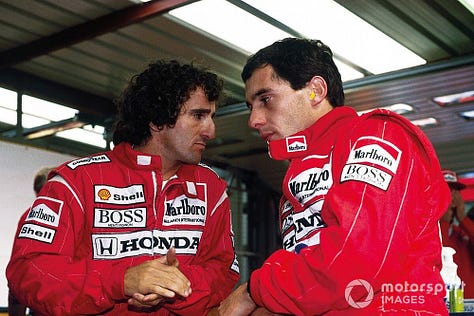
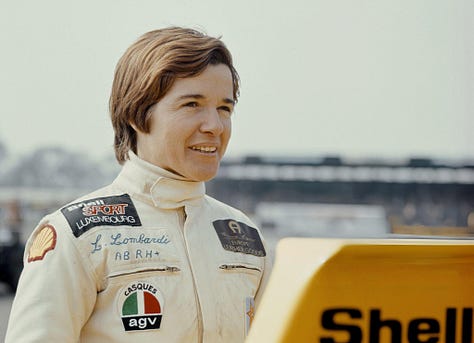
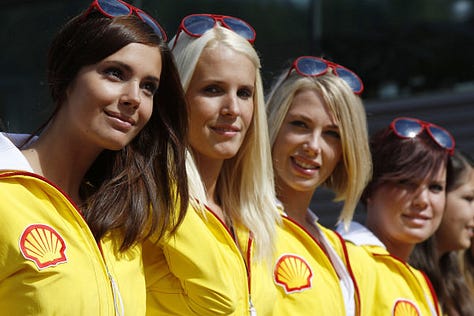

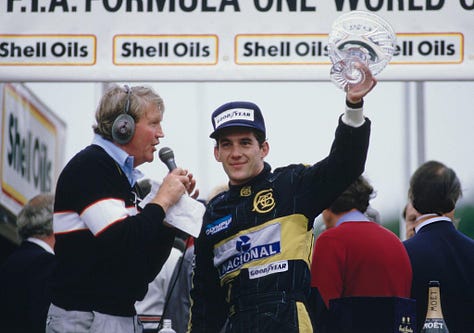
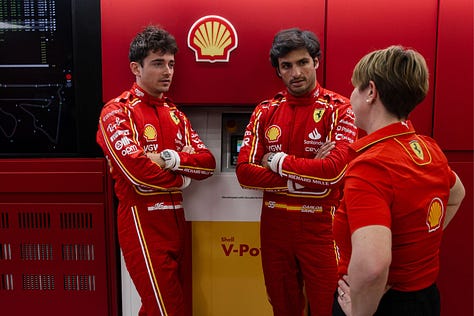
Fossil fuel advertising bans are attempting to cut back what activists say is harmful agenda setting, with Shell as a go-to example. But the legality of nationwide bans is shaky. After Guterres’ call to action, legal scholars in the U.S. argued that it may be difficult to prove that fossil fuel promotion contains intentionally misleading, false and/or illegal messaging. With gas stations around nearly every corner, the bans also prompt the obvious question: What counts as an advertisement? Zwolle, the same city where fossil fuel advertising first became illegal, is backpedaling: the city said in late July that a total ban is “legally impossible.”
Despite fossil fuel companies and legal scholars arguing that wide-scale advertising bans aren’t legal, environmental advocates continue to equate the danger of oil and gas advertisements to Big Tobacco’s reign. The correlation hits home for Formula 1. Before the United Kingdom took on Big Tobacco in 2003, Formula 1 was ahead of the curve. Two years earlier, the sport’s ruling body voted to scrub the sport clean—removing tobacco sponsorship from car liveries and driver racing suits. That didn’t stop cigarette conglomerates from pouring money into the elite racing series. Philip Morris International owns Mission Winnow, the ill-defined “content lab” serving as Ferrari’s primary sponsor starting in 2018. In 2021, the team removed the Mission Winnow logo after critics pointed out the loophole and before regulators could reprimand Ferrari. Now, cryptocurrency and online gambling sponsorships have slid into Big Tobacco’s place. Earlier this year,
and I wrote about how cryptocurrency, online gambling and vape companies circumvented federal and municipal regulations in race host countries. For some teams, skirting around laws prohibiting cryptocurrency sponsorship was as easy as a piece of duct tape over team kits. For others, swapping out title sponsors race-by-race resulted in both a branding headache and a mouthful, like Stake Kick Sauber F1 Team switching between “Kick Sauber” and “Stake F1 Team” throughout the season. On Thursday, the Dutch government warned that Stake F1 Team had to compete under its different name, Kick Sauber, in compliance with gambling laws. Stake.com, an online cryptocurrency casino and sports betting platform, was still plastered on the team’s cars during the race weekend. Despite the team entering the Grand Prix under a secondary name, Kick, a video live-streaming platform, is co-founded by the same two men behind Stake.com.Even if fuel companies are outlawed from North to South Holland and Formula 1 is required to take an eraser to its Big Oil title sponsors, it’s likely the sport will follow a similar pattern as tobacco and cryptocurrency: sidestepping the rules.
It is, after all, what the sport’s talented 10 teams of brainiacs are best at.
As Joshua Robinson and Jonathan Clegg wrote in The Formula, “The drivers may be the ones who get doused in champagne and invited to the Met Gala, but the real game-changers are the nerds who spend their entire careers studying the rulebook and hunting for loopholes.”


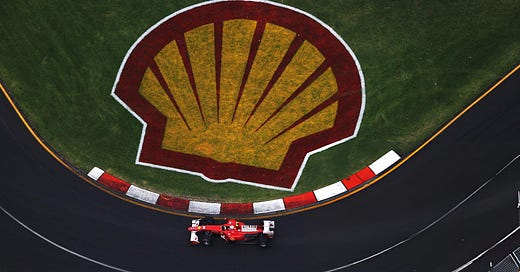



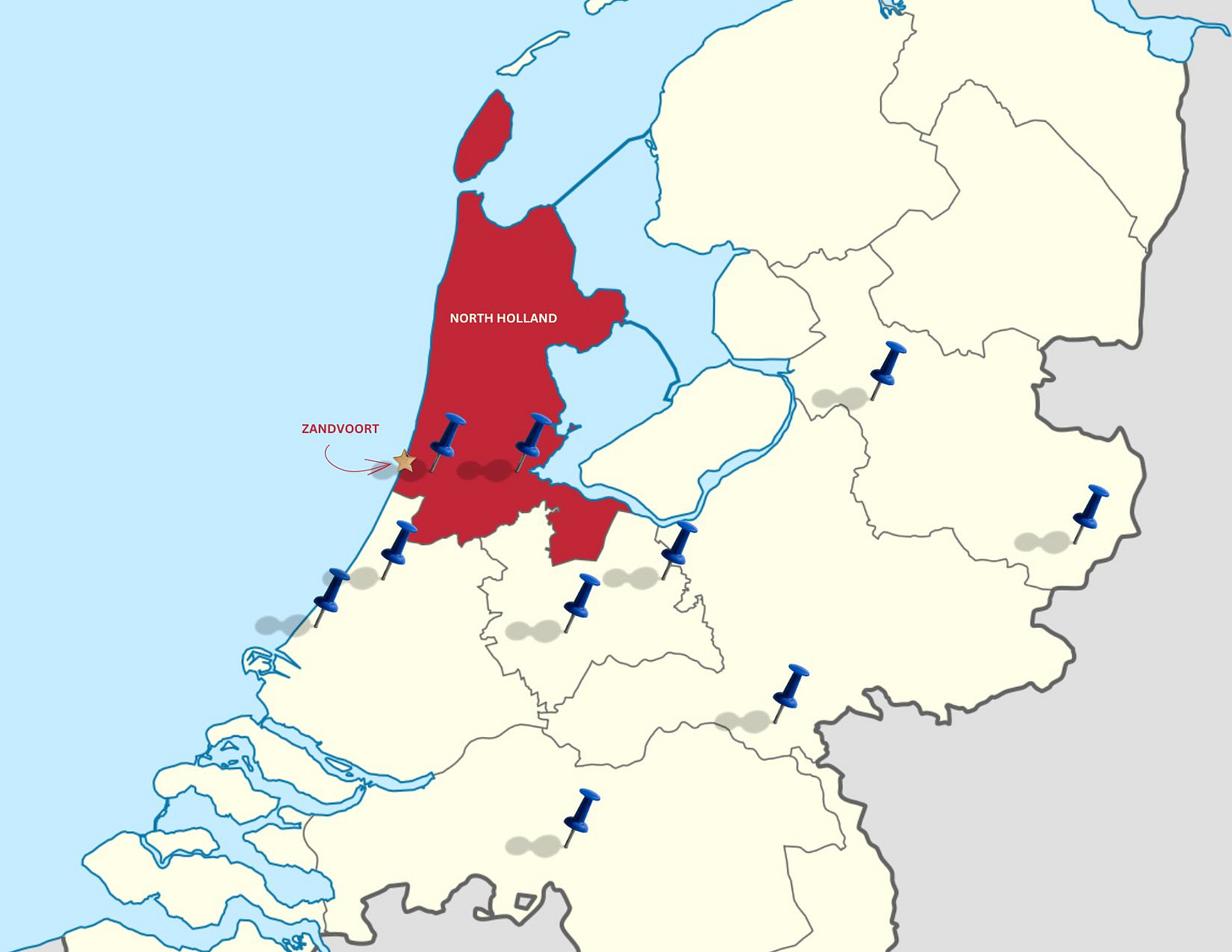
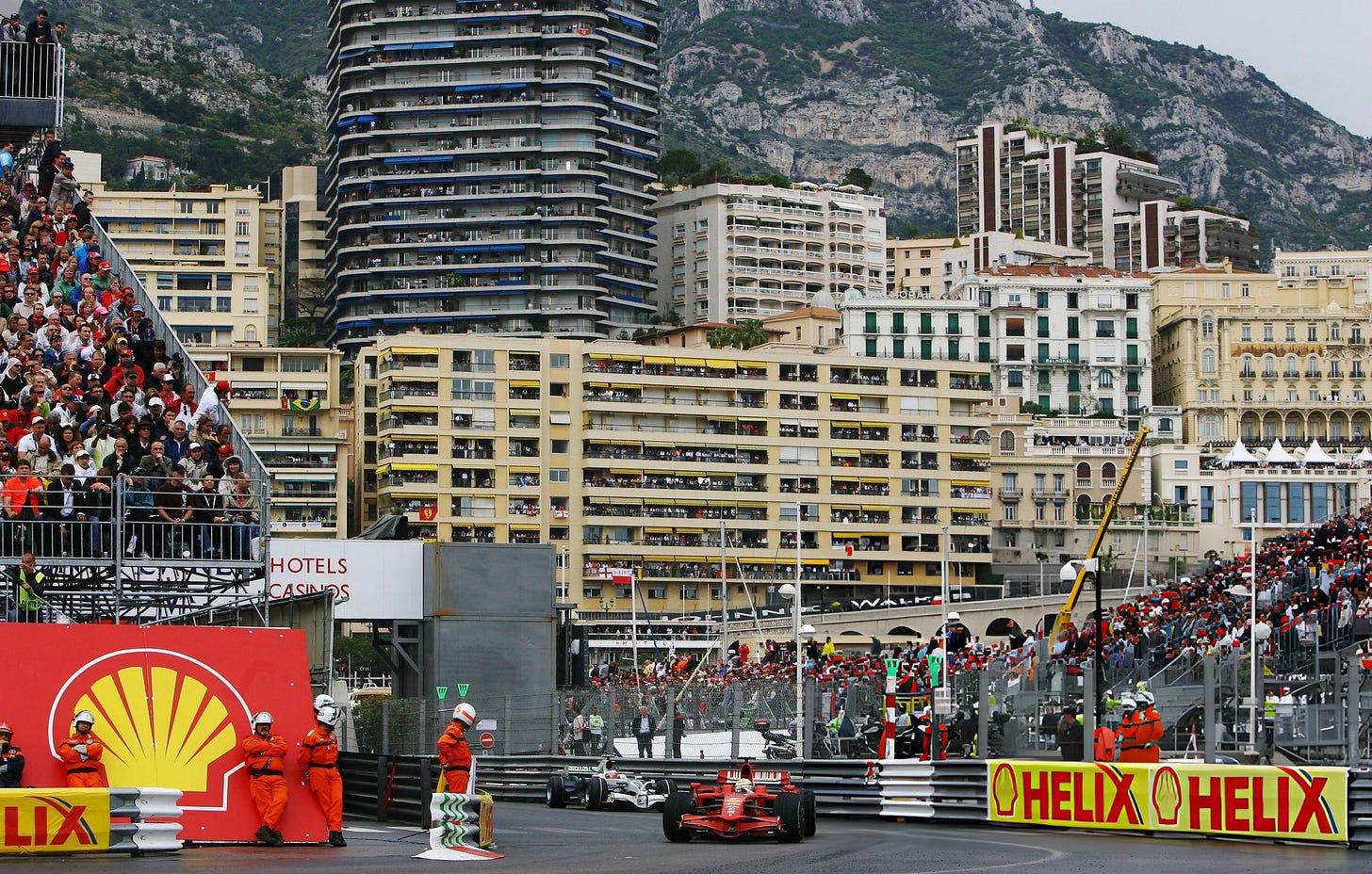

Fantastic analysis. Motorsport really is treading a fine line. Does F1 leverage these companies in their synthetic fuel initiative? If not, who has the resources to produce a pillar of their Net Zero 2030 plan? No easy answers.